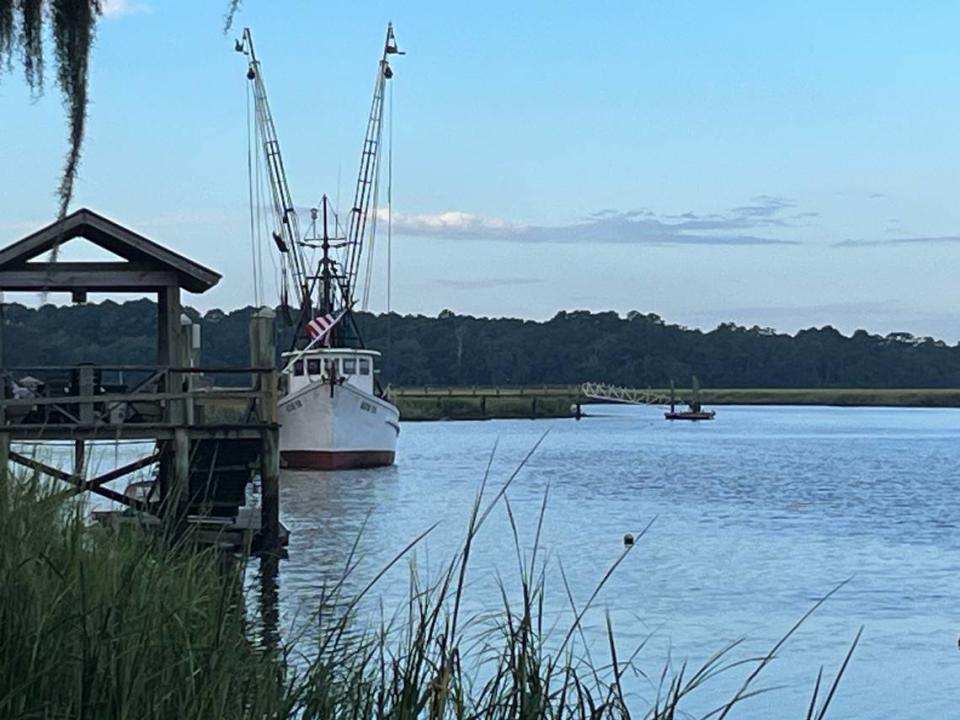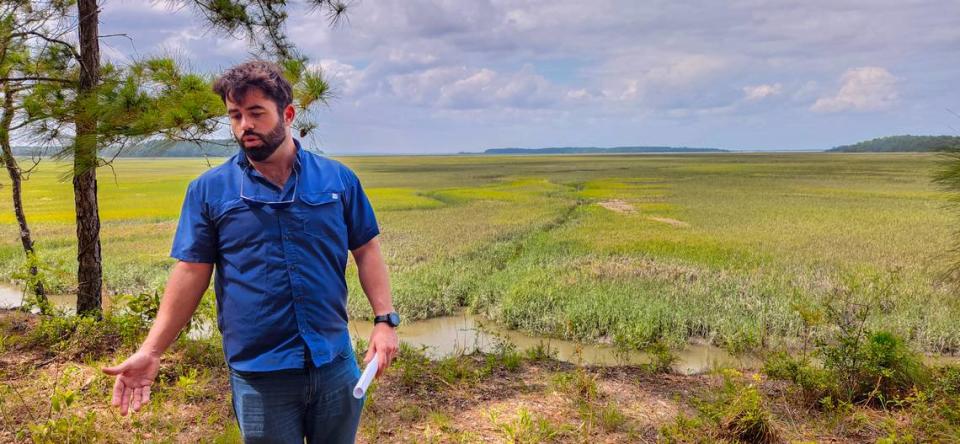Now is the time to protect St. Helena Island from becoming another resort community | Opinion
Protect St. Helena
I am native of St. Helena Island, an alumni of Beaufort High School, and I currently serve as a trustee for the Penn Center. While I reside on Hilton Head Island today, I own property on St. Helena Island and have a vested interest in seeing my native island avoid the same fate as Hilton Head Island — a place where golf courses, resorts, and gated communities have inundated the landscape since the 1950s, displacing many of the island’s once predominately Black residents.
During my research related to the proposed development on Pine Island on St. Helena, I came across an article from the December 1987 edition of National Geographic titled: “Sea Change in the Sea Islands ‘No Place to Lay Weary Head.’”
The story features a poignant image of a woman gated out of the place where she was born on Kiawah Island. It is the perfect illustration of what could happen on St. Helena Island if golf courses, resorts and gated communities are allowed.
St. Helena Island residents had the foresight in the 1990s to put the Cultural Protection Overlay zone in place to protect Gullah/Geechee culture, rural landscapes, working farms and fishing villages.
The removal of 502 acres of property from the CPO would set a precedent and undoubtedly open St. Helena’s floodgates to these harmful developments. Now is not the time to rollback community-driven protections simply because they inconvenience one individual who made a bad investment, well-aware of the ban on golf, resorts, and gated communities that applied to the property before making the purchase.
St. Helena Island residents and supporters around the county don’t want to see St. Helena Island become another Hilton Head Island, and Hilton Head Island residents don’t want to become another Myrtle Beach.
Finally, it is not the local, state or federal government’s responsibility to bail out the Pine Island investor through “spot zoning,” which is illegal.
Arnold Brown, St. Helena Island
Islanders leaving due to high costs
Homeowners’ insurance rates for Hilton Head are increasing more than 50%.
Hurricane winds that have hit Hilton Head: 1893, 105 mph winds; 1947, 105 mph winds; 2016, 105 mph winds.
My insurance company gave me nothing for damage caused by Hurricane Matthew in 2016.
Instead I had to take out a FEMA loan.
Many people are selling their homes, leaving our beloved Island, and this is one of the reasons.
It is time for our governor, and our state representatives to “represent” us.
Nancy Mace, where are you? I know, on every TV show talking about impeachment.Take some time out to help on a local issue.
Brian Doyle, HHI
Thank you, PAL donors
Note: The writer is the development coordinator for the Palmetto Animal League.
In September, the 14th Annual Bid for PAL Online Auction, held Sept. 7-10, raised crucial funds for the Palmetto Animal League’s no-kill adoption center in Okatie.
We are truly grateful to all those who generously donated items for our auction. The funds raised will provide life-saving resources for vulnerable and victimized animals for months to come.
We also thank our “Partner in Rescue” businesses for their support, including John Kilmer Fine Interiors and AutoNation Subaru Hilton Head. Our appreciation also goes out to our media partners: The Bluffton Sun/The Hilton Head Sun, Dick Broadcasting (Bob 106.9, G100, Rewind 107.9 and La Pantera 96.1), and other local media that helped publicize the event.
People can adopt, foster, donate or volunteer anytime at PalmettoAnimalLeague.org.
Stephanie Bashaw, Okatie
Support gaming guardrails
Many South Carolinians already place wagers on sports and other events through unregulated apps and websites.
These practices expose Palmetto State residents to potential threats, including possibly having their financial and personal information compromised.
It is common sense to pass the S.C. Equine Advancement Act which, in part, addresses these issues by regulating what is now a black-market industry.
If passed, the legislation would allow the state to grant licenses to and regulate up to three carefully screened gaming providers.
Providers would only be allowed to offer gaming opportunities on equine events.
Protecting South Carolinians from bad actors should be a top priority for our government officials.
Creating and enforcing guardrails around the gaming industry to prevent malicious activity is a win for everyone.
Patten Watson, Columbia



